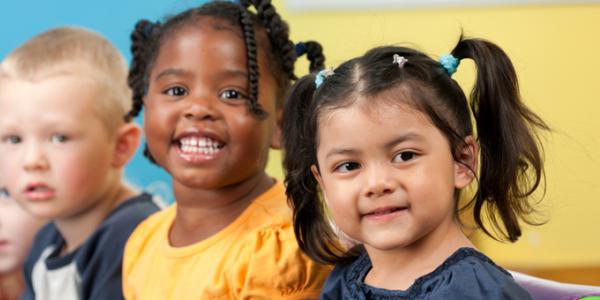Fast 5 Gamechangers Help Diverse Children Respect Each Other

Early childhood educators have the power to start early and start strong by helping all children learn to respect themselves and others. When children and teachers speak different languages, they need special strategies to build that life-changing sense of community.
-
Pronounce each child’s name as closely as possible. Model for your dual language learners (DLLs) and for all children that each child deserves the respect of hearing this important marker of their identity. We don’t want to create a divide between children whose names belong and those whose names are ‘foreign’. Learn more about this national movement.
-
Learn to say some things in every child’s language…. not just the easy ones. Research shows that when a teacher speaks a child’s home language some part of every day in preschool, the behaviors of the children with each other are improved. This is a way of demonstrating for all of the children that there are no second class citizens in preschool. Ask your local librarian for help. Read about the research.
-
Celebrate each child’s authentic culture. Get to know each child and family and include representations of what’s important to them in your classroom environment and activities. This goes beyond ordering ‘multicultural’ materials from catalogs. Get personal, involve families and let the environment help all of the children and families really understand and appreciate each other.
-
Teach children strategies for respectful communication with peers across languages. Mutual respect grows from good communication. Download this resource from Language Castle describing research-based strategies to help multilingual children interact effectively with peers.
-
Give every child a chance to be a helper. You may have seen the story from Fred Rogers about his mother teaching him to look for the helpers during frightening times. I also think it is important to encourage children to look for the helper within themselves. Every time a child helps or is helped, both sides develop positive feelings that build positive relationships across all languages and cultures. Helping can be part of the curriculum in a multilingual class.
It is an extraordinary gift to be an early childhood educator and have the power to shape the future. Thank you!
Karen Nemeth, EdM, is an author, speaker, and consultant on early childhood language development at Language Castle LLC. She is the author of Basics of Supporting Dual Language Learners: An Introduction for Educators of Children From Birth Through Age 8. [email protected]
